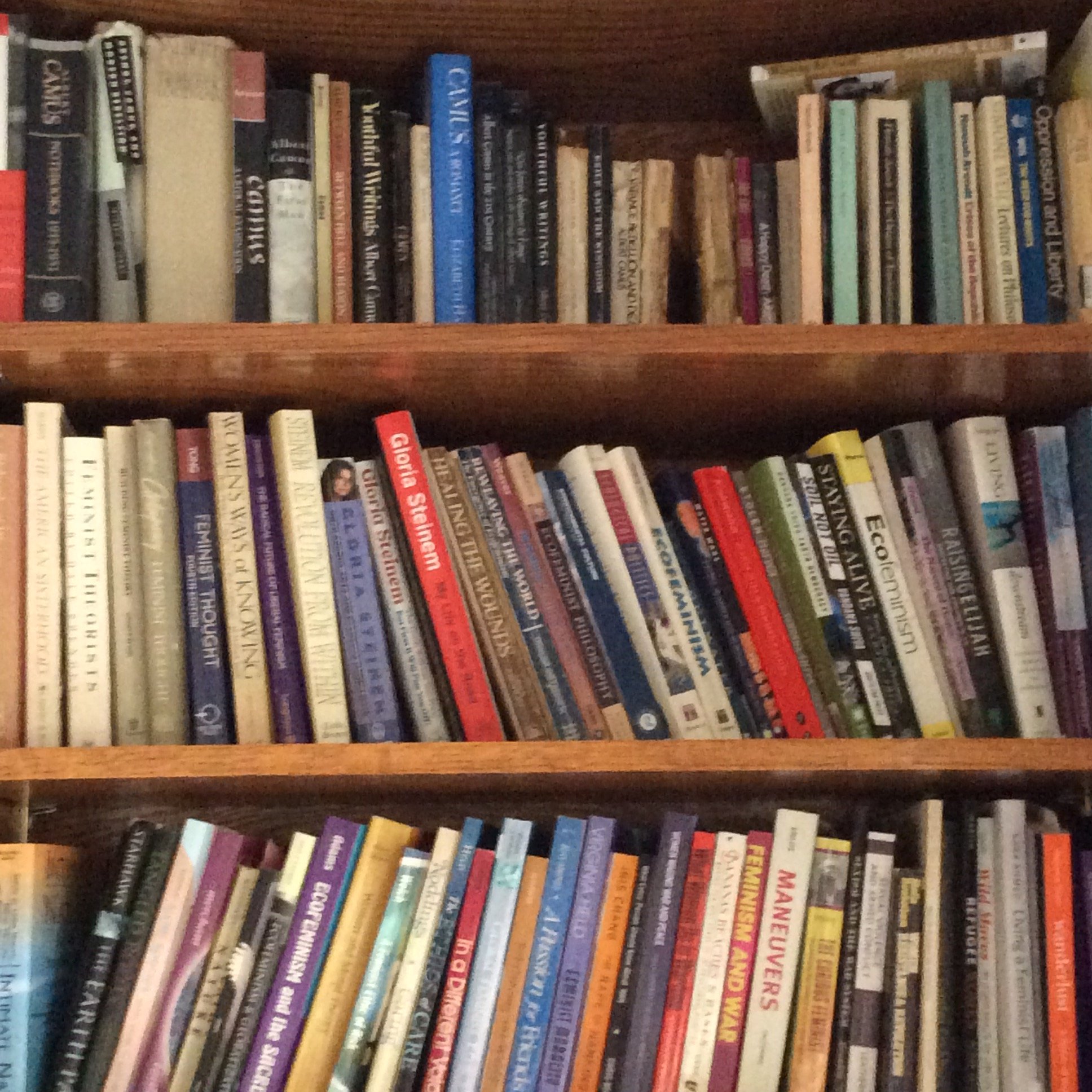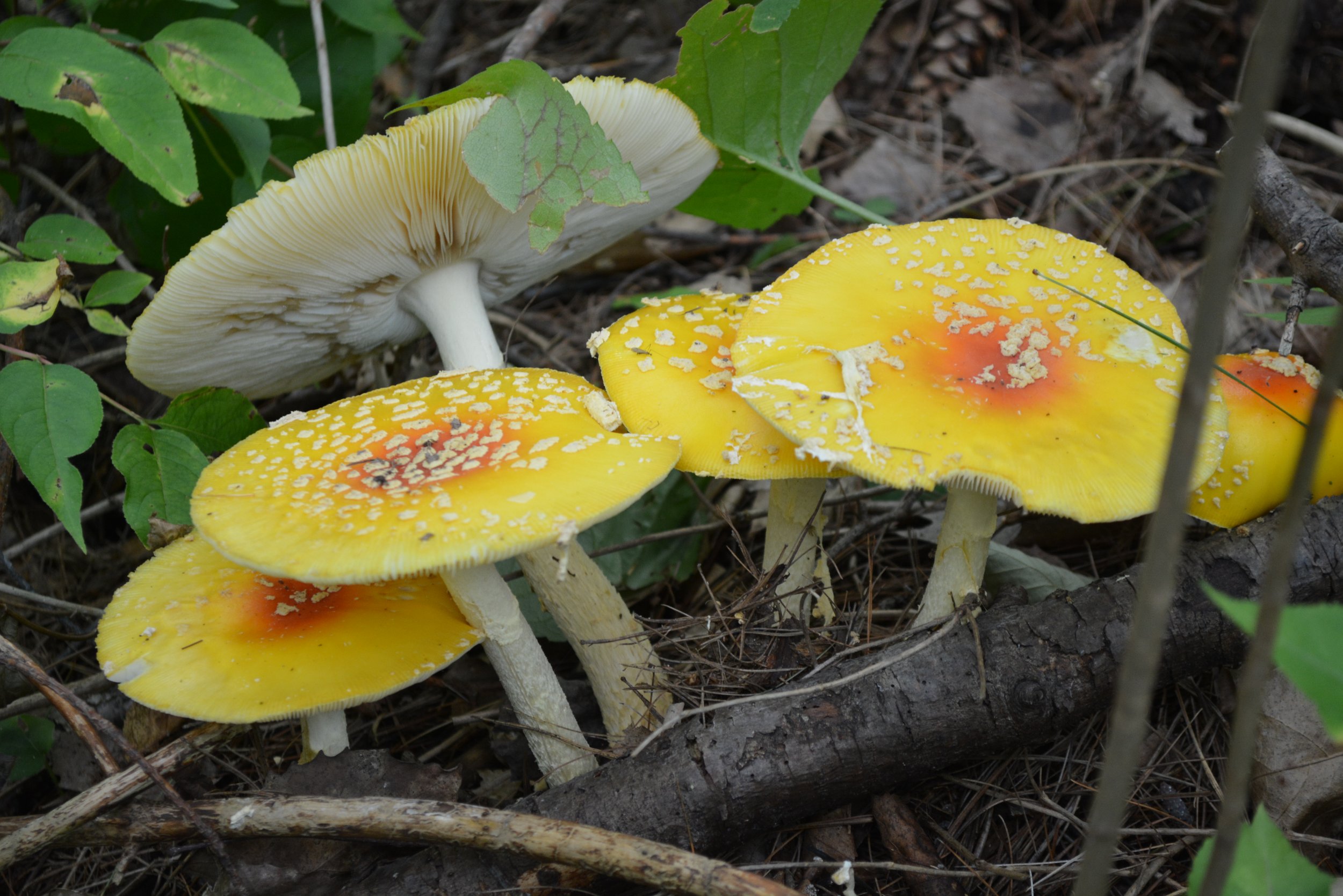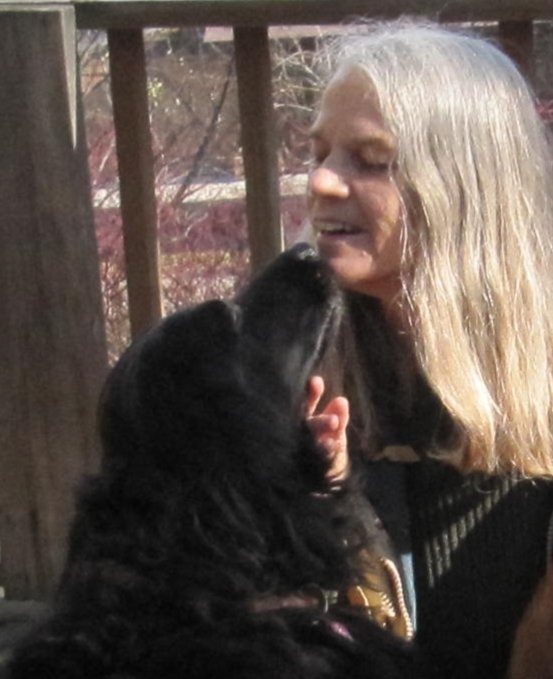On November 5th, I just happened to click on the first blog post I wrote, and discovered that it was the anniversary of my first post. That made me wonder about all that I had thought and written about over the past year. Had I fulfilled what I had set out to do? As I read through all that I had said I would be writing about, I realized that I had touched on many, though not all. The blog has evolved in surprising ways. I never thought I would write so much about snow! Nor did I anticipate so many “In Memoriam” pieces. We have lost so many bright lights this past year.
Why write? I’ve wondered about that often. As I stated in the original post in this blog, in some ways it began with my question upon retiring from life as a professor of what to do with all this accumulated knowledge. My friend, Babette, gave me my answer with her insight that I would continue to do my work, but out in the world.
That world closed to me in March 2020. On International Women’s Day that year, I was out doing my work in the world, giving a guest sermon at our local Unitarian Church. One of the congregants announced that he and his wife would not be seeing them for a while. They had been storing up food and supplies to isolate for the next few months because of the rumors of Covid spreading to the US. At that time, I thought they were being very extreme. Four days later I began my own isolation which continues to this day. Being immunosuppressed and a transplant recipient put me at extreme risk in those early days of Covid. When the vaccines came out, and people first started moving back out into the world, I discovered that I was not making antibodies in response to the vaccine. Even when I lowered my immunosuppressants and began having an antibody response several months and a third dose later, experts told us they couldn’t be sure of how our T and B cells were responding,[i] and to continue isolating.
Marge Piercy’s poem “To Be of Use” has often gone through my mind these past two plus years:
The people I love the best
jump into work head first. . . .
. . . do what needs to be done, again and again.
I want to be with people who submerge
in the task. . . .
The pitcher cries for water to carry
And a person for work that is real.
I want to be the person who does what needs to be done, who submerges in the task; I am the person who cries for work that is real. When the pandemic began, I longed to be in the thick of things, and to have the requisite medical skills to care for the sick and the dying, and to do what I could to bring healing and comfort. I hungered to be in the makeshift food distribution centers, preparing meals, providing sustenance. When George Floyd was murdered, I wanted to be out on the streets marching. When Enbridge built Line 3 through pristine wild rice lakes, I ached to be in the lines of resistance, and to offer the trauma healing I had trained for for this very moment. I yearned to be available to care for my sister as she grows older, and for my newborn grand niece and nephew, and to celebrate and mourn with others at gatherings, feasts, weddings, funerals. But being immunosuppressed, in what for those like me is an ongoing pandemic, has rendered me mostly useless in the ways I normally would engage in the tasks at hand out in the world.
And so, I write -- hoping that somewhere, sometime, someone will find these words to be of use.
Beyond feeling of use in the world, writing feeds my soul and my need for creativity and intellectual stimulation. I only recently realized that’s it also a way that I play -- with words, ideas, photos. Creating these posts is fun for me.
It also only recently occurred to me that I’m creating these as a legacy to my son and to those yet unborn offspring – in case they wonder someday, as I have, about their grandmother, or in generations to come, their great or great great grandmother – who she was; what she thought about; what she did with her life. In the midst of Covid and with turning 70, the thought of leaving something to those who come after me has been more present in my mind. I have wanted to pass down the wisdom that was handed to me. I regard it as a sort of trust – not something to be hoarded or to dissolve into the ether when I do -- but rather something to be given away, passed along, paid forward.
As I begin to create the documents that will let others know my wishes regarding the distribution of my estate after my death, it is curious to me that my assets are reckoned only in terms of financial wealth. The online estate planning site asks me: What kind of assets will the Trust hold? Who are your beneficiaries and what is your relationship to them? Who will be your trustee? I ponder these questions in terms of putting my thoughts to paper.
What kind of assets will the trust hold? The wisdom of so many, my thoughts and ideas, the wealth of the accumulation of knowledge of a long-lived life steeped in books, yes, but also the wisdom of experience, and of so many teachers, chief among them the earth – the wisdom of water and wind, of mushrooms, moss, and muskrats. I hope that it may also hold music and song; an appreciation for sunrises and Superior, rocks and waterfalls; the kinship of dogs; and most of all a full treasure chest of love. May that love come through my words.
Who will my beneficiaries be? My first thought is that I bequeath these words to my child and his soon-to-be-born son, and others who come after, whom I hope will benefit from them in some small way in years to come. But from the outset my hope and intention in writing have been that it is of benefit to those who read it, whether in pleasure in the reading, or fodder for thought, or a new perspective, or a recognition of the appreciation I feel towards all who take the time. I don’t know where and with whom my words land. I have been surprised at times by those unknown to me who have picked it up, passed it on. Who knows who the beneficiaries will be? I could not begin to designate them.
What is your relationship to them? One of trust and respect, appreciation and gratitude. Were it not for the relationship assumed and forged in this writing, these would simply be jottings in a journal seen only by me. So, I would hope the relationship is honorable, in Adrienne Rich’s use of the term “honorable relationship” – one of refining the truths we can share, that does justice to our complexity, and that I am eager, longing for the possibility of extending the possibilities of truth between us.[ii]
Who will be the trustee? I entrust these words to any and all who would partake of them, to take from them whatever is useful and good, and to pass along to others in their circles of love, learning, and care.
In her reflections on consumption in Braiding Sweetgrass, Robin Wall Kimmerer ponders the question, “Is what I’m writing worthy of the tree consumed in the creation of this piece of paper?” – or in this case, the fossil fuels burned to power the internet servers.[iii] What makes the writing a gift of reciprocity, worthy of the life of the tree? My heart responds — that it is honest, heartfelt, truthful and truth-telling; that it honors the questions, opens to possibilities; that it invites conversation, widens perspectives, illuminates, challenges and occasionally discomfits; that it also is uplifting, inspiring, embraces wonder, brings joy. For my writing to be worthy it needs as well to be “right speech”[iv] – not harmful, cruel, abusive, malicious, or hateful, but rather benevolent, respectful, and meaningful. It also needs to be clear and accessible -- democratic in that sense. It matters to me that it speaks to others, perhaps touches something universal, and finally, that it be beautiful.
If in some way these words have done any of this for you reading them, then I am glad. It’s been an honor to share my thoughts with you. Thank you to those who have shared yours in response, or have simply told me how you appreciate the writings. I look forward to continuing the conversation.
Sources
Kimmerer, Robin Wall. Braiding Sweetgrass: Indigenous Wisdom, Scientific Knowledge, and the Teachings of Plants. Minneapolis: Milkweed Press, 2013.
Piercy, Marge. Circles on the Water. New York: Knopf, 1982.
Rich, Adrienne. On Lies, Secrets, and Silence: Selected Prose: 1966-1978. New York: W.W. Norton & Co., 1979.
Testamentary Trust vs Living Trust: What's the Difference? (trustandwill.com)
[i] Antibodies are just one part of an effective response to vaccines. The B (memory) cells and the T (killer) cells also need to be primed to go into action if the virus is detected.
[ii] From Rich’s essay, “On Women and Honor,” 188 & 194. In her closing words: “It [the honorable relationship] means that most of the time I am eager, longing for the possibility of telling you. That these possibilities may seem frightening, but not destructive, to me. That I feel strong enough to hear your tentative and groping words. That we both know we are trying, all the time, to extend the possibilities of truth between us.” 194.
[iii] See particularly her chapters on” Wiisgaak Gokpanagen” and “The Honorable Harvest.”
[iv] “Right Speech” is the third step on the Buddhist Eight-Fold Path.




